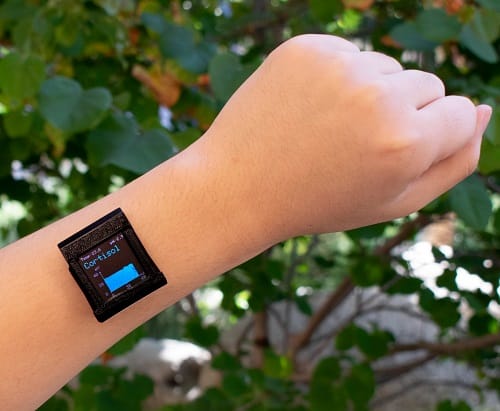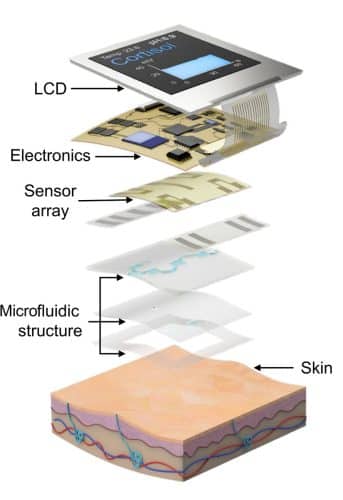The wearable can accurately measure the fluctuating cortisol levels and opens new possibilities for personalised health monitoring

To combat mental stress, the human body produces the hormone cortisol, which acts as a natural antidote against the ill effects of fluctuating blood pressure, anxiety and related conditions. Traditionally, cortisol levels have been measured through invasive techniques such as collecting blood samples. Although such practice helps to diagnose certain diseases, it fails to capture changes in cortisol levels over time.
Now, a UCLA research team has developed a smartwatch that non-invasively and in real-time, measures cortisol levels. All that is required is the patient’s sweat.
“I anticipate that the ability to monitor variations in cortisol closely across time will be very instructive for people with psychiatric disorders,” said Anne Andrews, a UCLA professor of psychiatry and biobehavioral sciences, member of the California NanoSystems Institute (CNSI) at UCLA and member of the Semel Institute for Neuroscience and Human Behavior. “They may be able to see something coming or monitor changes in their own personal patterns.”
In the new smartwatch, a strip of specialised thin adhesive film collects tiny volumes of sweat, measurable in millionths of a litre. An attached sensor detects cortisol using engineered strands of DNA, called aptamers, which are designed so that a cortisol molecule fits into each aptamer like a key fits a lock. When cortisol attaches, the aptamer changes shape in a way that alters electric fields at the surface of a transistor.

“We determined that by tracking cortisol in sweat; we would be able to monitor such changes in a wearable format, as we have shown before for other small molecules such as metabolites and pharmaceuticals,” said Sam Emaminejad, an associate professor of electrical and computer engineering at the UCLA Samueli School of Engineering, and a member of CNSI. “Because of its small molecular size, cortisol diffuses in sweat with concentration levels that closely reflect its circulating levels.”
More than 20 years of study to measure key chemicals in the brain using probes and the presence of nucleic acids to recognise specific molecules culminates has helped Andrews to culminate her long scientific quest. Meanwhile, Emaminejad works on developing wearable devices with biosensors have contributed on tracking the levels of certain molecules related to specific health measures.
“We’re entering the era of point-of-person monitoring, where instead of going to a doctor to get checked out, the doctor is basically always with us,” he said. “The data are collected, analysed and provided right on the body, giving us real-time feedback to improve our health and well-being.”
Emaminejad’s lab had previously demonstrated that a disposable version of the specialised adhesive film enabled smartwatches to analyse chemicals from sweat, as well as a technology that prompted small amounts of sweat even when the wearer was still. The sensors developed could be useful for diagnosing diseases such as cystic fibrosis and for personalising drug dosages.
As stated earlier, levels of the hormone can vary widely from person to person, making it impossible for doctors to learn very much from any single measurement. But with the smartwatch, tracking of individual cortisol levels over time may alert wearers and their physicians, to changes that could be clinically significant for diagnosis or monitoring the effects of treatment.







